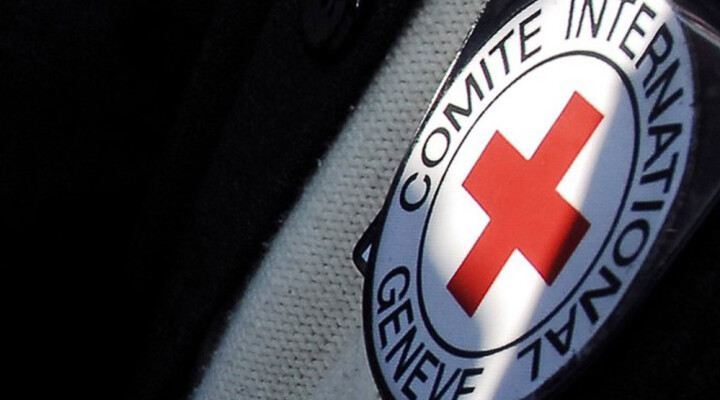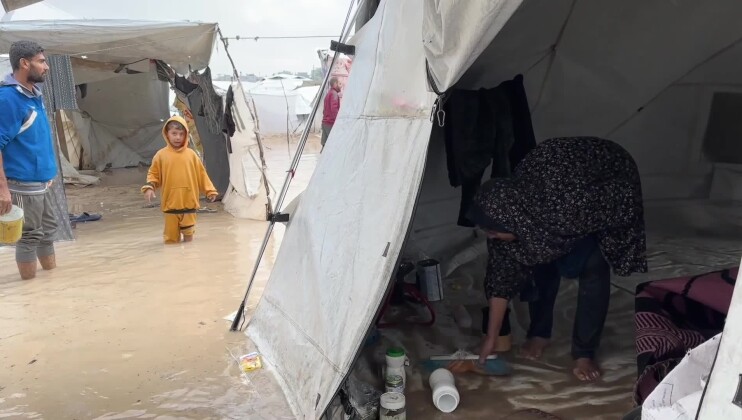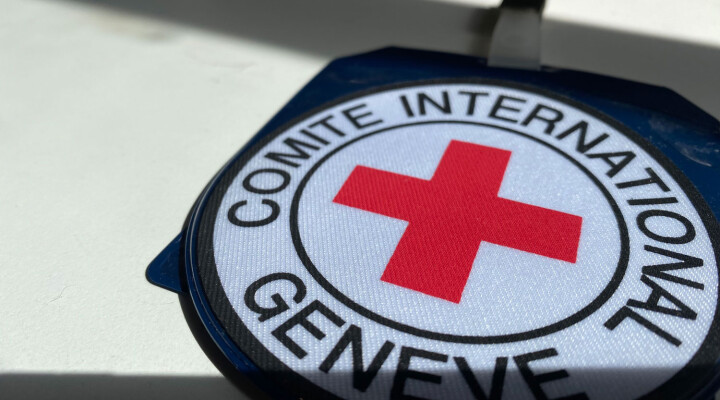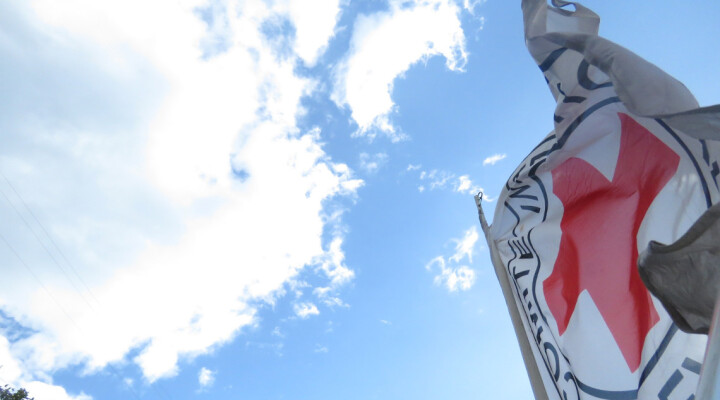Syria: Al Hol field hospital introduces COVID-19 preventative measures
As the global response to the COVID-19 pandemic picks up pace, the International Committee of the Red Cross urges all not to overlook people in places of detention and refugee and displacement camps around the world.
There are an estimated 100,000 people living in camps across North East Syria, as well as tens of thousands of detainees in crowded and unhealthy conditions.
Al Hol camp is a striking example of the humanitarian challenges - around 66,000 people live there in dire conditions, the majority are children and women.
In Al Hol camp, the field hospital run by the ICRC with the Syrian Arab Red Crescent remains open, offering services that are much-needed by the camp population, including life-saving care.
To ensure the hospital can remain open and functioning to capacity, our team is taking all necessary and preventive measures to protect the patients and themselves against any spread of the virus.
Right now we have 16 health staff working in the hospital (surgeons, nurses and physiotherapists). Our team is conducting around 200 consultations per week and around 20 surgical procedures. They are receiving around 24 patients per week and perform around 44 physiotherapy sessions.
Preventative measures introduced including fencing to avoid overcrowding, additional handwashing points, extra protective equipment for triage staff, no relatives allowed to accompany patients and screening before entry in the event of suspected cases.
The ICRC also continues to provide water trucking and garbage collection through contractors. We have changed the way we operate our collective kitchen, now delivering meals daily to tents individually, to avoid gathering and queuing. We are still providing 50,000 meals per week, as usual.
For people living in in war-zones, COVID-19 is one more threat on top of many others. For almost a decade, Syrians have lived with constant immediate threats to life, such as gunfire, shelling and bombings and/or lack of life-saving health care. Some of the existing challenges and humanitarian needs across the country:
- Half of all health facilities are out of service or partially functioning, across the country.
- Large-scale displacement has led to a degradation in access to health care and essential services across the country. It is estimated that one in every two Syrians is displaced, inside or outside the country.
- Areas of active hostilities are hit hard. This leads to a serious reduction of health services, which forces people who are wounded and sick to travel further and increases vulnerability.
In many places where the ICRC works clean water is a luxury, and soap may be non-existent. Physical distancing is a privilege simply not available to people in these places. The implementation of basic infection prevention and control measures can be challenging due to the scarcity of resources. These conditions are ideal for this virus to spread fast. That’s why a global response is so needed.
An immediate and concerted response by states and humanitarian organizations is vital. COVID-19 does not have to be catastrophic for war-torn countries with weakened healthcare systems. Plans to prevent and respond to the virus must urgently move forward before it gains a foothold in conflict zones.
LOGLIST
Location: Al Hol Camp, Northeast Syria.
Camera / Producer: Adnan Hizam & Anne-Bois d’Enghien
Date of filming: 30 and 31 March 2020
Length: 00:02:27
On-screen credit: ICRC
ICRC ref: 20200403-AlHol-Covidresponse
Copyright: ICRC access all
00:00- 00:34 General views of Al Hol camp
00:35- 01:04: Long shot interview with Eissa Daher, the ICRC field hospital manger in Al Hol Camp: “This is Al Hol field hospital, and this is the screening and triage area. We screen here because of the COVID-19 pandemic. The patients are triaged here. Around the hospital also we have put some prevention and control measures in place and this what we are doing so far. We hope everything will be ok.”
01:05 - 01:26: Medium shots of the hospital staff helping patients waiting outside the hospital get numbers and admitting one by one.
01:27 - 01:40: wide shots for the field hospital different sections
01:41 - 01:50: close-up on different hospital staff washing and sanitizing their hands
01:51 - 01:53: medium shot of a doctor checking on the equipment
01:54 - 02:00: wide shot for staff cleaning and sanitizing inside the field hospital
02:01 - 02:14: close-up on hospital staff assisting a patient in proper handwashing before serving the meal.
Sound bite for a nurse: “We do this every time we serve a meal and it is breakfast. Staff are very well instructed on how to tell the patients and guide them through hand washing”
02:15 - 02:27: patients and hospital staff discussing cases inside one section of the field hospital
ENDS



